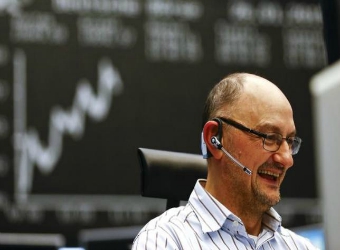Markets in Europe closed higher on Friday as investors digested news of more money for Greece and focused on wider political events and data releases.
The pan-European Stoxx 600 ended Friday 0.66 percent higher, with the majority of sectors in positive territory. All major bourses were little changed for the week however as a sell off in tech stocks continued to weigh.
Wall Street, however, remained in the red as a miss on U.S. housing data did little to buoy major indices, which have been weighed down by slumping tech stocks for the majority of the week. European retailers were down 1.27 late Friday after Amazon announced plans to buy Whole Foods in an all cash, $13.7 billion deal. Sainsbury’s, Marks & Spencer, Carrefour, Ocado and Booker were all seen in the red, down between 1.8 percent and almost 5 percent.
European retailers were down 1.27 late Friday after Amazon announced plans to buy Whole Foods in an all cash, $13.7 billion deal. Sainsbury’s, Marks & Spencer, Carrefour, Ocado and Booker were all seen in the red, down between 1.8 percent and almost 5 percent.
Tesco was down 4.9 percent by close of trade, despite reporting its strongest quarterly sales growth for seven years on Friday. It had hit the top of the benchmark in early deals. In the U.S. Whole Foods stocks rose 28 percent at the open of trade.
Elsewhere, however, food and beverages and financial services were among the best performing sectors, both up more than a percent. Earlier, Nestle said to be considering a possible sale of its $900 million-a-year U.S. confectionery business.
The stock was up by three percent, sending the sector higher. British pub retailer Greene King was also up 4.5 percent.
CNH Industrial was at the top of the European benchmark for most of the morning, following a rating upgrade by Standard & Poor’s. However, that position has since been taken by British manufacturing company Cobham, which was up 7.1 percent in afternoon deals.
Shares of the French utility firm EDF also rose on Friday more than 3.9 percent after a ratings upgrade by JP Morgan and Investec. Energy stocks were also finding some support after being under pressure earlier in the week on weaker crude prices.
In terms of data, wage growth in France moved at its fastest pace in three years in the first quarter of 2017.
The International Monetary Fund agreed to join the Greek bailout program with a standby arrangement of less than $2 billion. However, it will not disburse the money until the euro zone details debt relief measures, which is not expected until next year.
Meanwhile, to keep the Greek economy afloat, creditors agreed to disburse $9.5 billion that will allow Athens to complete payments next month.
As a result, Greek ten-year bond yields were at their lowest level in nearly a month on Friday morning.
Meanwhile, in France, President Emmanuel Macron is set to win a massive majority in the second round of the parliamentary election this Sunday, two opinion polls showed Thursday.
Early on Friday morning, the Bank of Japan decided to keep its policy unchanged. Governor Haruhiko Kuroda said following the decision: “There’s some distance to achieving 2 percent inflation, so it’s inappropriate to say now specifically how we will exit our ultra-loose monetary policy and how that could affect the BOJ’s financial health. Laying out specific simulations now would only create confusion. We will debate an exit strategy only after 2 percent inflation is achieved and price growth stays there stably.”
Russia’s central bank announced Friday a 25-basis points cut in a key interest rate to 9 percent as inflation in the economy nears its target.
Source: CNBC


